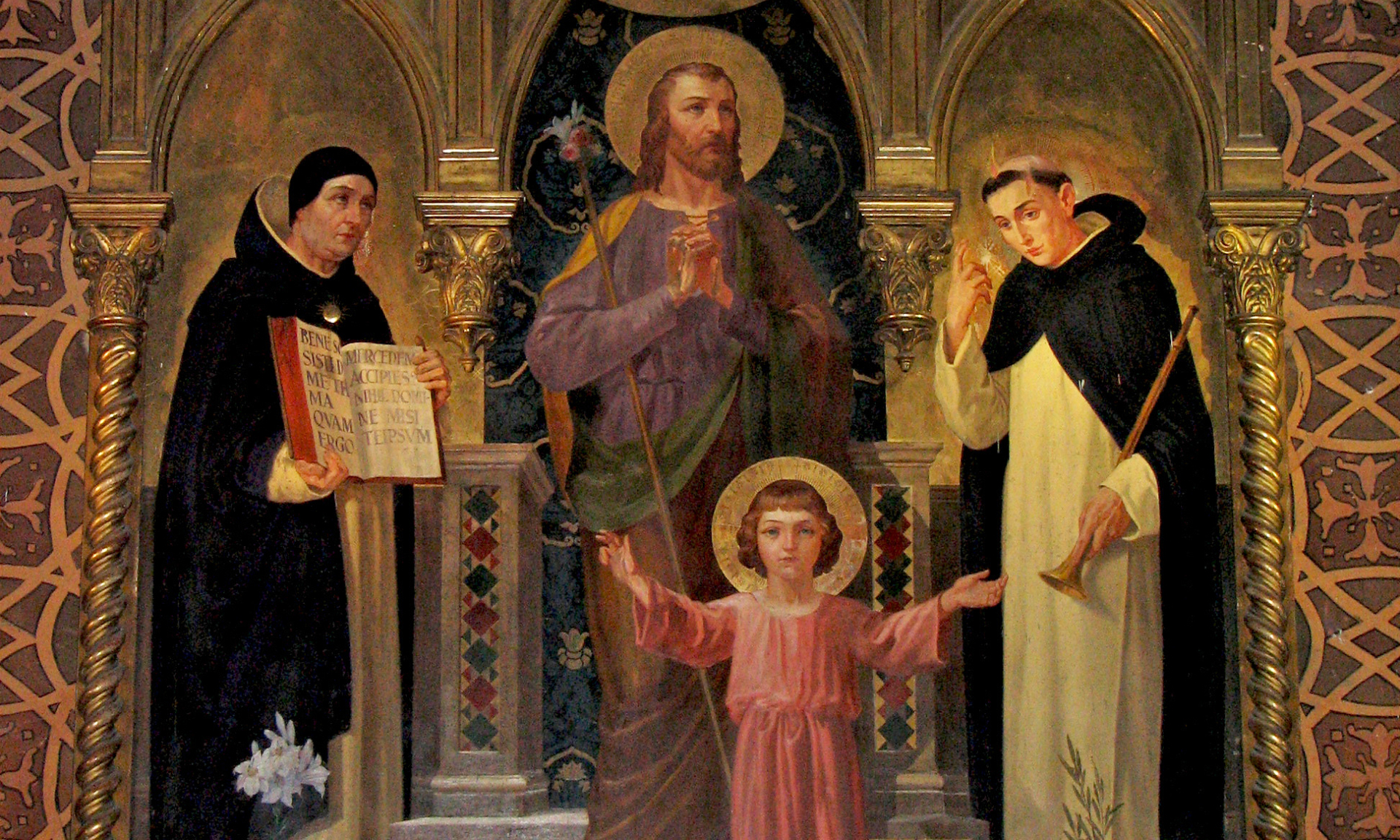Ite ad Joseph: An Essay on St. Joseph
An “Ite ad Joseph” essay offers a theological reflection on the life of Jesus’ foster father. Inspired by Pope Francis’s declaration of the Year of Saint Joseph and our own membership in the Province of St. Joseph, these essays provide insight into the importance of St. Joseph in the Christian life.
The saints are like good friends—their examples inspire us, and they actually help us in our difficulties. When Pope Francis announced the Year of St. Joseph, he pointed us to one of the best role models and intercessors. St. Teresa of Avila once said, “I don’t recall up to this day ever having petitioned him for anything that he failed to grant.” So, here are a few ways St. Joseph can help us this year.
1) Fear & Sickness
With the Covid-19 pandemic raging, we’re surrounded by sickness and fear. St. Joseph knew something about both. After the joy of Christmas, an angel warned him, “Rise, take the child and his mother, and flee to Egypt, and remain there till I tell you; for Herod is about to search for the child, to destroy him” (Matt 2:13). With alarm bells ringing, Joseph kept calm. Because he knew how dearly God loved them, he didn’t let fear control him. He took all the necessary precautions, but he knew God was in control.
When illness finally came, Joseph had Jesus and Mary by his side; their love never abandoned him when he was isolated from everyone else.
In the Litany of St. Joseph, we pray to him as Solace of the wretched, Hope of the sick, Patron of the dying, and Terror of demons. In our fear and isolation, he can comfort us, stir up our hope, prepare us for heaven, and chase away the demons that terrorize us.
2) Silence & Peace
Joseph didn’t talk very much—at least, we don’t have any of his words. In his book, Joseph the Silent, Michel Gasnier comments that Joseph’s “only pride then lay in fulfilling God’s designs, quietly, peacefully, so silently that the Evangelist can give us no word of his. In all the strange situations in which God placed him, he remained calm and silent” (Gasnier, 183).
Saying that 2020-2021 has had its “strange situations” is a massive understatement. All the noise and drama around us—flashing news reports and raucous political disturbances—upset our interior tranquility. We can take our cue from Joseph and dial down the exterior noise. Turning off the TV, taking out the earbuds, and putting down the phone, we can ask Joseph to bring us peace. Then, in the quiet, we might hear God saying “Peace I leave with you; my peace I give to you” (Jn 14:27).
3) Openness to God
Because silence and peace reigned in Joseph’s heart, he was open to God’s direction in his life. We don’t know what Joseph was planning for his life, but it’s a sure bet he didn’t think that it would include marrying the Mother of God and raising the Son of God. But, he happily accepted the unexpected mission to care for Jesus and Mary (Matt 1:18–25).
Joseph lived the words, “Thy will be done” from the Lord’s Prayer. He “did not know where God would lead him; it was enough that God knew” (182). That attitude of obedience brought Joseph the greatest happiness—it gave him Mary and Jesus as his family.
Joseph, most obedient, pray for us so that we might place our whole lives in God’s hands and trust in his will, which is always for our good.
4) True Greatness
Open to God and obedient, we’ll do great things, but great things like Joseph did. In our culture, many people dream of making it big in Hollywood or New York, becoming famous, or distinguished. Or, sometimes, people just want to go viral. Whether it’s that tweet or tik-tok, we crave the exhilaration of celebrity.
Joseph teaches us that true greatness doesn’t look like that. True greatness isn’t always flashy. Sometimes, it is hidden. Greatness is forged in the daily grind of loving and serving God and neighbor.
Joseph never went viral. In their earthly lives, Jesus and Mary got all the attention. And that is just how Joseph wanted it. He knew that greatness doesn’t mean clawing your way to the top. Hidden yet faithful, silent yet consistent, Joseph provided a home for Mary and Jesus, protecting them and providing for them. It might not have been showy, but it set the stage for the redemption of the world.
Gasnier gets at the core of Joseph’s greatness: “And his final word is that the essential thing is not to appear, but to be; not to bear a title, but to serve” (186). In an age of Instas and Finstas with facades and fake personas, Joseph can help us avoid trying to appear great and seek instead to actually be great.
Spouse of the Mother of God, Foster father of the Son of God, Diligent protector of Christ, pray for us!
Bonus: Reading Recommendations
Reading a good book on St. Joseph can help us learn from him and lean on him this year. Here are a few recommendations.
- Michel Gasnier, Joseph the Silent: My favorite book on St. Joseph.
- Pope Francis, Patris Corde: The Holy Father’s letter announcing the Year of St. Joseph and reflecting on his relevance for us today.
- Jan Dobraczyński, The Shadow of the Father: A novel based on the Gospels that reveals how Joseph’s fatherhood is an earthly shadow or image of the heavenly Father. Pope Francis recommends this book in Patris Corde.
- Donald Calloway, Consecration to St. Joseph: The Wonders of Our Spiritual Father: Calloway presents a 33-Day program of preparation for a consecration to St. Joseph similar to the popular devotion of Marian consecrations.
✠
Photo by Fr. Lawrence Lew, O.P. (used with permission)







